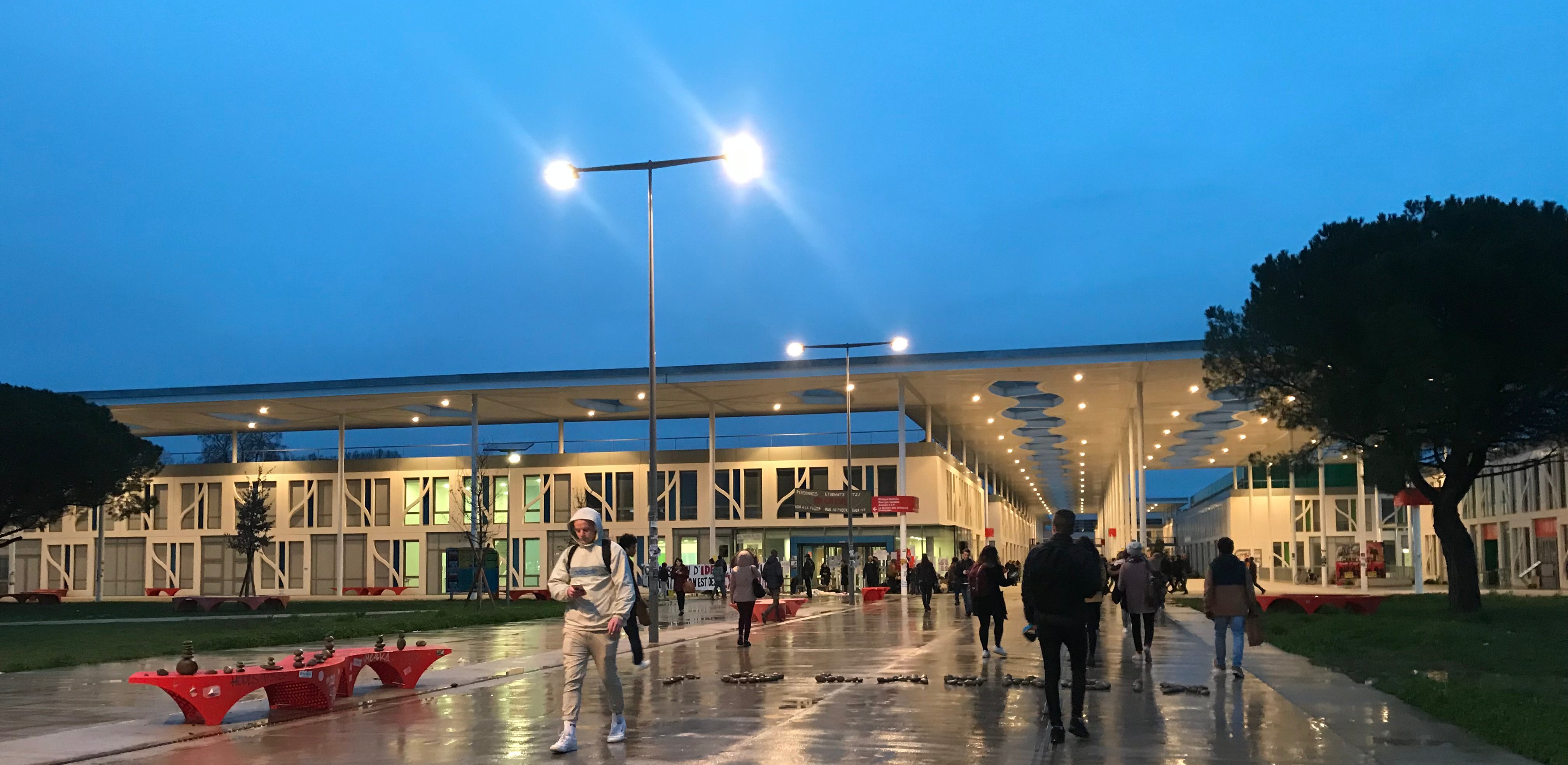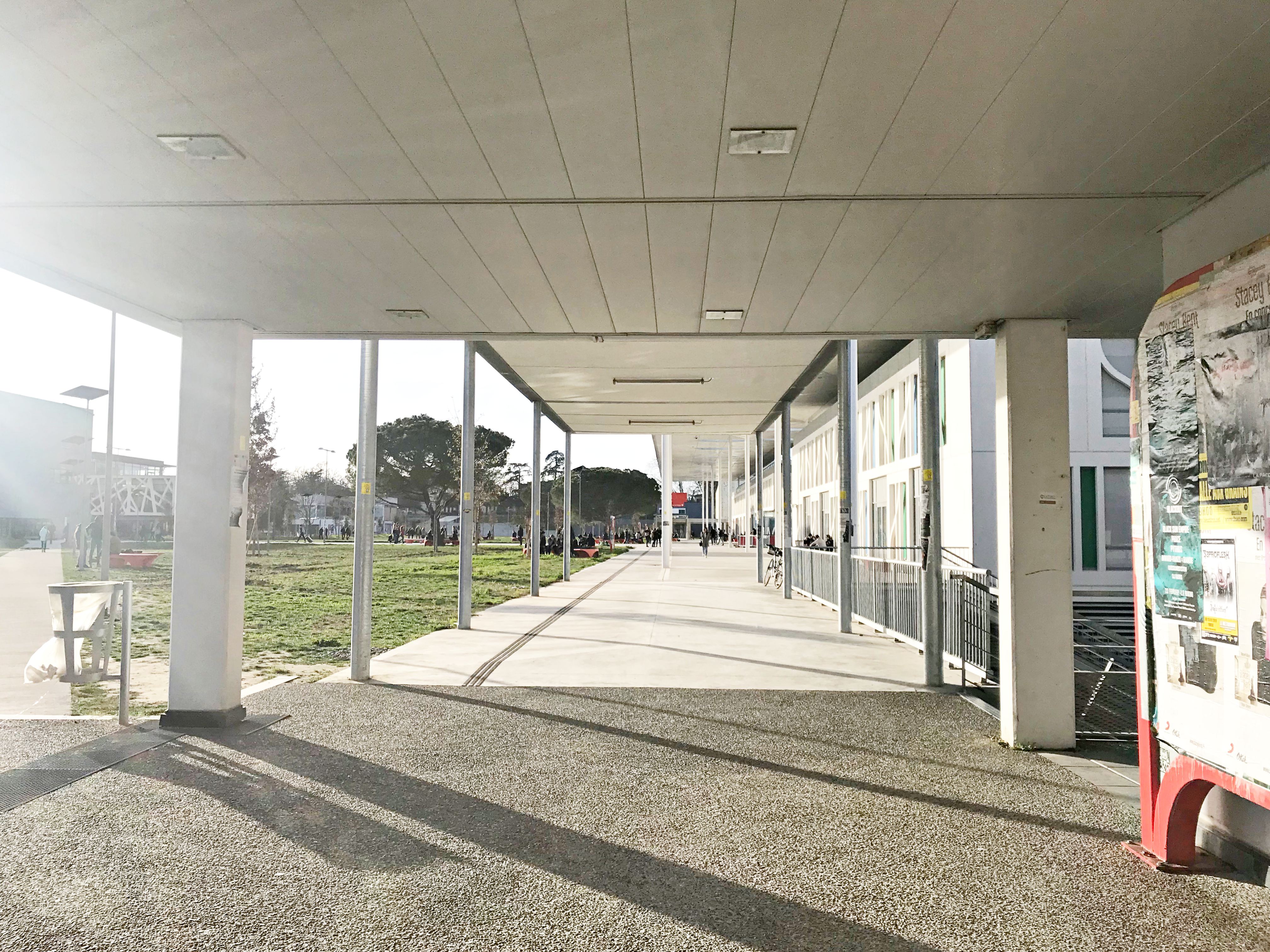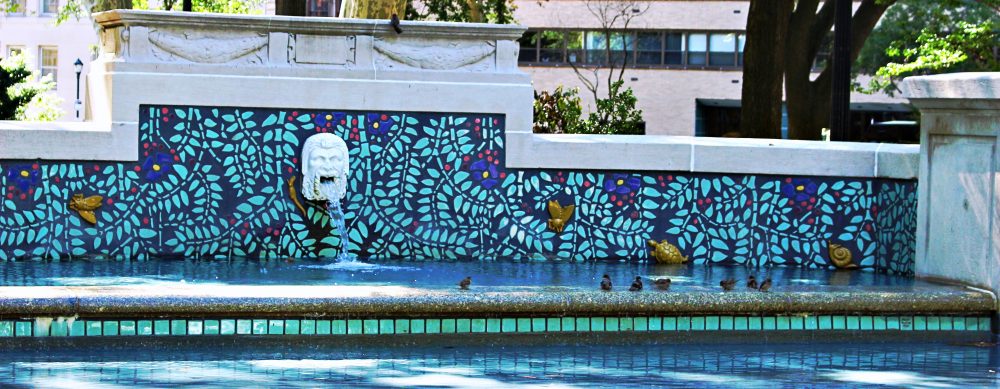
One of the most important aspects of junior year abroad is the opportunity to experience a system of education different from what you’ll find in the US and to take courses with local students. That is one of the main reasons I recommend study abroad. I’m now enrolled at a public university in Toulouse, France, along with 30,000 other students, and as I have discovered, Mawrtyrs should expect a very different classroom experience from what they are used to.
When I decided to study abroad, I knew there would be cultural challenges. However, at the University of Toulouse Jean-Jaurès where I take my classes, the differences stem not only from language but also from the classroom atmosphere. Although I do not suggest one method is better than the other, my classes at UT2J (as it is called) differ markedly from those that I take at the Mawr, and there are things I admire in both methods and at both universities.

One of the biggest changes for me is the sheer number of students in my classes in France. I suppose I have grown used to, if not a little spoiled, by the class sizes at Bryn Mawr. My Women in the Magreb seminar at the Mawr, which consisted of six students, stood in stark contrast to the first lecture hall of my Medieval History class at UT2J, where more than 200 students filtered into an amphitheater.
The style of teaching in France is another big difference. The relationship between professors and students is significantly more distant. Although I would not expect a professor to know her 200-plus students on a first-name basis, nevertheless, part of me is a little homesick for my professors at Bryn Mawr who know me as a student and an individual.

Another difference, which echoes the large classroom sizes, is the grading system. In France there is not a culture of grading in installments. There is no participation grade, no grade for attendance, nor for separate quizzes or tests. Instead there are two grades: the midterm and the final exam. Some of my friends take courses that do not have a midterm, thus their fate rests soley on their performance on the final exam.
Certainly, in France I am receiving a different education, and I cannot help but miss the Mawr—especially during WTF Week! (To all the first years: a final welcome to the Mawr! I hope this past eventful, hectic, and exciting week has made you feel at home.) However, perhaps most precious to me in France are the new friends I have made. Taking courses at a large university has given me the opportunity to bond, share my culture, and have fascinating discussions with French students, fellow Americans, and other international students spending their year abroad.

